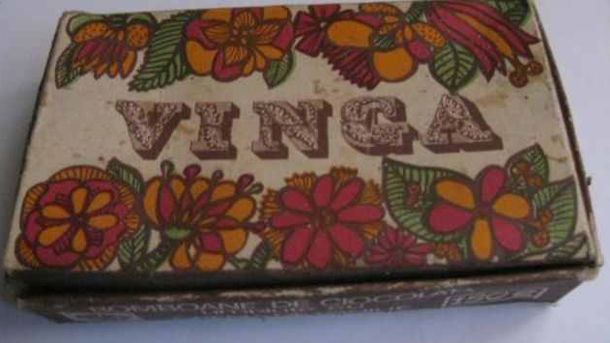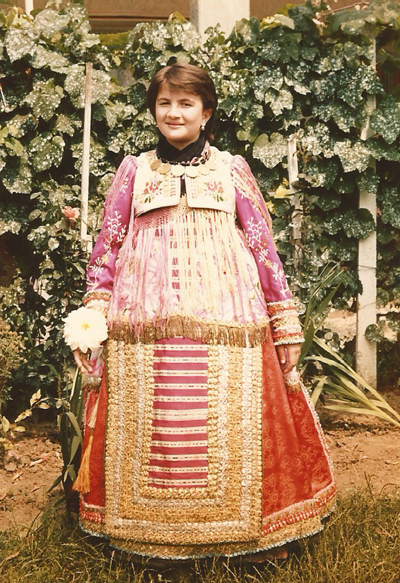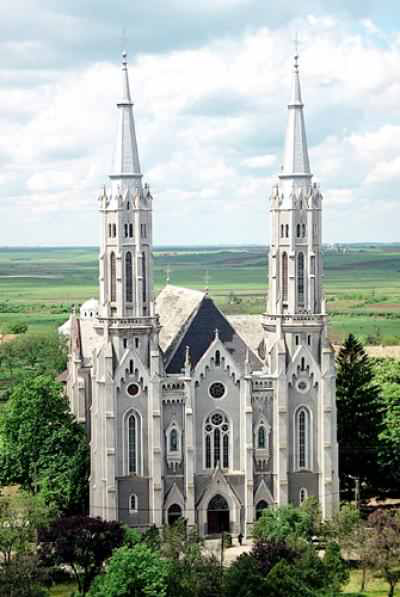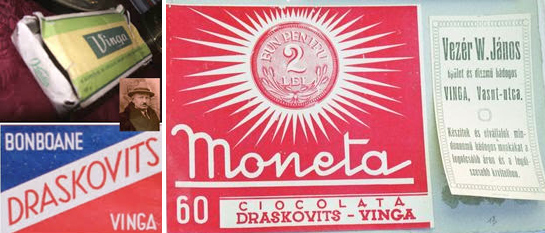The history, culture and identity of the Banat Bulgarians in Romania, Serbia and Bulgaria are in the focus of attention of the conference named “Banat Bulgarians - Before and Now” held in Bulgaria’s capital Sofia. The event is organized by the Institute for Ethnology and Folklore Studies with Ethnographic Museum at the Bulgarian Academy of Sciences and the Union of Bulgarians in Banat. Mirela-Antonela Petrescu from the Federation of Bulgarian Community in Romania and journalist from the Romanian National Radio is one of the participants at the forum. She told Radio Bulgaria details about the past and the present of the ethnic Bulgarians living in the Romanian village of Vinga:
 “Vinga is the second biggest village in Banat in terms of the number of ethnic Bulgarians living there. It was founded in 1741 when the ethnic Bulgarians were given the village as a gift by Emperor KarlVI to settle permanently. In 1744 Empress Maria Theresia gave these people certain privileges and the village had the statute of a town named Thereziopolis. Vinga was an important cultural center of the Banat Bulgarians until the First World War. In the middle of the 19th century Banat Bulgarians used to publish books and newspapers there. Moreover a Bulgarian Educational Society was established in Vinga”, Mirela Petrescu went on to say.
“Vinga is the second biggest village in Banat in terms of the number of ethnic Bulgarians living there. It was founded in 1741 when the ethnic Bulgarians were given the village as a gift by Emperor KarlVI to settle permanently. In 1744 Empress Maria Theresia gave these people certain privileges and the village had the statute of a town named Thereziopolis. Vinga was an important cultural center of the Banat Bulgarians until the First World War. In the middle of the 19th century Banat Bulgarians used to publish books and newspapers there. Moreover a Bulgarian Educational Society was established in Vinga”, Mirela Petrescu went on to say.
 The Bulgarian community in Vinga amounts to some 300-350 people. It is united around its distinctive material and spiritual culture. The local population actively carries out cultural activities and aims at preserving its customs and traditions. The Banat Bulgarians mark Christmas the Bulgarian style and follow all Bulgarian wedding rituals. Moreover, the local people dress in Bulgarian folk costumes when they go to churches on various holidays. And last, but not the least, they communicate in Bulgarian even nowadays:
The Bulgarian community in Vinga amounts to some 300-350 people. It is united around its distinctive material and spiritual culture. The local population actively carries out cultural activities and aims at preserving its customs and traditions. The Banat Bulgarians mark Christmas the Bulgarian style and follow all Bulgarian wedding rituals. Moreover, the local people dress in Bulgarian folk costumes when they go to churches on various holidays. And last, but not the least, they communicate in Bulgarian even nowadays:
“The Bulgarian community in Vinga speaks Banat Bulgarian dialect which has been preserved for over 300 years. This is a very archaic Bulgarian dialect which has been subject to studies by the Bulgarian linguists. Celebrated Bulgarian research-worker Stoyko Stoykov who dedicated a whole book named Bulgarian Dialectology is one of them. The basic word stock and the grammatical composition of this dialect are based on the Bulgarian language, yet it was influenced by the surrounding environment- by the Romanian, Serbian and other languages,” the Romanian journalist further told Radio Bulgaria and specified:
 “The village of Vinga is situated between two large cities - Arad and Timisoara. The position of this village has inevitably influenced the local population, unlike another Banat Bulgarian village - Stár Bišnov, which is more isolated from large cities and managed to preserve its identity better over the years.”
“The village of Vinga is situated between two large cities - Arad and Timisoara. The position of this village has inevitably influenced the local population, unlike another Banat Bulgarian village - Stár Bišnov, which is more isolated from large cities and managed to preserve its identity better over the years.”
Religion has also kept the spirit of the local population alive over the years:
“The Banat Bulgarians are Catholics. An imposing Christian temple was built in this village thanks to the donations of the local population. This is one of the most- beautiful Catholic Churches in Banat. It was built in 1891 and consecrated the year after. In 1992 the church was declared national cultural monument in Romania. The temple hosted in the past two years concerts within the frameworks of the International Festival of Organ Music in Timisoara.”
Once, the village took pride in its chocolate factory, which used to make sweet temptations for the Romanian royal family in the first half of the 20th century, Mirela Petrescu further said and added:
 “In the 19th century the village of Vinga was famous in Romania and abroad with its chocolate factory which was named after the village. In 1885 a confectionery factory opened in this village. It was bought by the Serbian citizen Draskovits who managed to turn it into one of Europe’s most popular chocolate factories. It sold successfully in Europe, America and Asia. In 1948 the chocolate factory was nationalized and slowly decayed.”
“In the 19th century the village of Vinga was famous in Romania and abroad with its chocolate factory which was named after the village. In 1885 a confectionery factory opened in this village. It was bought by the Serbian citizen Draskovits who managed to turn it into one of Europe’s most popular chocolate factories. It sold successfully in Europe, America and Asia. In 1948 the chocolate factory was nationalized and slowly decayed.”
English version: Kostadin Atanasov
Photos: private libraryConservationists from Bulgaria Bird Walks are organising a birdwatching walk in Varna today to observe water fowl and forest birds. Two walks are planned in the Sea Garden at 9.00 and 13.00. There will be similar outings every month in the city, said..
The greater flamingo was considered an exotic species for Bulgaria, but for several years, entire colonies have chosen the lakes around Burgas as their residence. Currently, more than 450 flamingos inhabit the Burgas wetlands ...
Ruse now has the longest wooden pedestrian bridge in Bulgaria. The facility was opened at the end of 2024 in the Lipnik Forest Park. The bridge with a total length of 28 m is equipped with a glass railing and 7 glass windows, which..
On 25 January 1935, Tsar Boris III signed the decree establishing the Bulgarian National Radio. The document, which officially marked the beginning of..
The Federation of European Carnival Cities has declared Pernik a global center of masquerade traditions. 16 years ago, Prenik was named the European..

+359 2 9336 661
